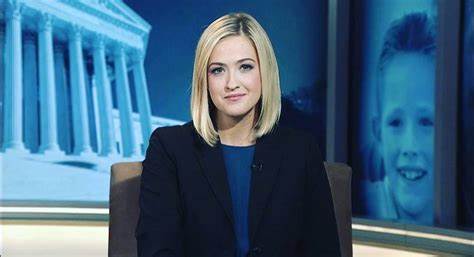
The following article is a synopsis of an episode from our Life Chat Podcast series. To listen to the full episode, click here.
What is it like being a young woman in a public university? What happens if you are pro-life and Catholic and you feel alone in your beliefs? Does every woman in this situation get subverted and indoctrinated and lose their religion and convictions?
According to Catherine Hadro, EWTN Pro-Life weekly host, this is not so! Catherine went to a public university and, even though she was not always the most vocal about her pro-life beliefs, she stuck to them throughout college. In a Life Chat episode with Mary Kate Knorr, former Director of Illinois Right to Life and now Strategic Partnerships Director at Students for Life Action, Catherine explains her journey through college and her adult life and how she held onto her pro-life values.
About her upbringing she says: “I have always been pro-life, even if I didn’t always use that label,” and this conviction came largely from her mother and the example she set for her children. Catherine’s mother faced an unplanned pregnancy when she was in college, and didn’t receive any financial support from her parents because their family was very poor. However, Catherine’s mother worked her hardest and got through college, while sometimes working three jobs to support herself and her child! “She chose life, and she chose life with great hope, but it was hard,” Catherine explains. Now, however, Catherine’s mother is the CFO of a global company, and Catherine remarks that her mother “epitomizes a woman’s strength.”
Catherine always knew that she was pro-life and lived out her core values but wasn’t always vocal about beliefs, especially during her freshman year of college. Later that year, however, Catherine went on the March for Life with a group of like-minded individuals, and she knew, going back to college, that she had a responsibility to share her beliefs.
Change didn’t happen that easily, though. One day, in the news agency she was working at through her college, the news got around to them that Dr. Alveda King was coming to speak at the university. Everyone was excited about it until they realized that King is actually a post-abortive pro-life speaker. Her news agency was buzzing with the plan that they weren’t going to cover the story because the speaker was pro-life. Catherine didn’t say anything to stop them. But this was a turning point from her. After walking away from that incident, she told herself, “Never again. Never again can you stay silent with faces that are hostile to the pro-life belief.”
Although it was a journey, Catherine became more and more outspoken about her pro-life belief, and out of the blue, she explains, she landed a job at EWTN. She worked for the nightly news program, so once in a while they would cover pro-life news. As Catherine moved up in the ranks and got to choose more of what the team would cover, she chose more and more pro-life news stories.
Eventually, she explains, EWTN asked if she would be willing to direct a new project: Pro-Life Weekly. Catherine vocalizes her appreciation to EWTN by saying, “They took a chance on me, and I’m so grateful that they were willing to take the chance on a young woman.”
She passionately declares that young women are crucial member of the pro-life movement because they are who the pro-choice movement is targeting: they try to claim that they are advocating for women- especially young women’s’- rights, and women need to make it clear that they do not want the right to kill their own child.
Catherine is filled with conviction to her work, and has amazing responses when Mary Kate asks how she ties her religion to her pro-life work without getting huge backlash from everyone. Catherine says that, “I noticed a huge change and pushback I got from friends and even family [when I moved to EWTN pro-life news work,]” but, “I would rather speak the truth in a way that strikes at lies.”
Catherine explains how there is a sort of confidence that comes when we know that what we are saying is true, and, “Because we have the truth and peace on our side, we have the Prince of Peace with us.”
